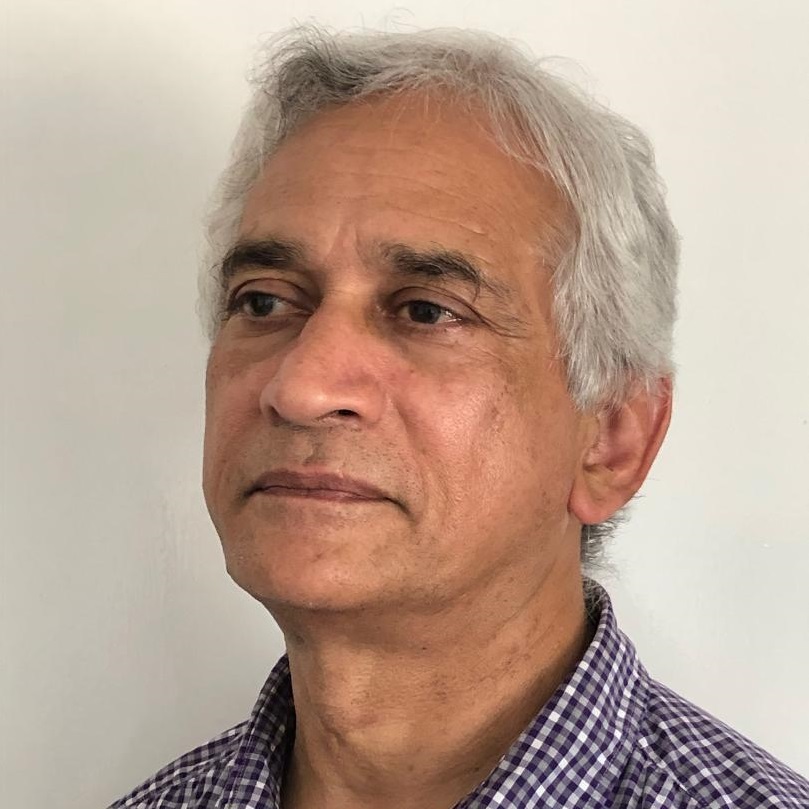by Lorenzo Da Costa

In 2011, personal distressful circumstances brought my career in Clinical Medicine to an end. I went through over a year of profound psychological distress and financial uncertainty during which time I encountered the YouTube talks of Ajahn Brahm. Listening to two one-hour talks a day, and periods of the practice of mindfulness, helped me through this period of personal trauma. In 2013, the thought entered into my head that I should summarise his main points as I understood them. I re-listened to his talks, with a paper and pen, and noted down some main themes. I divided this into the past, present, and future.
These insights offer a way of thinking and emotionally feeling that attenuates a lot of the everyday stress and anxiety and low mood that infiltrates ordinary life in day to day Western Society. Ajahn Brahm's appeal to the non-Buddhist listener is that he reiterates that the people who often approach him for advice do not see him from a direct interest in theoretical Buddhist philosophy.
They approach him with questions like ‘I've just lost my job,' I've been diagnosed with cancer,' ‘I've lost my money,' ‘my kids are on drugs,' and so on. How do you suggest I deal with this? His answers are completely practical. When asked questions such as ‘What is the meaning of Life?' he turns the question around to ‘
How can you make personal meaning of your life as you know it?' The following vignettes on Present and Future are based on my take of what Ajahn Brahm has had to say.
Let Go Of The Idea That You Have To ‘Improve Yourself'
Unlike Christian teachings where ideas about moral behavior and moral judgment loom large, the Eastern philosophy paths I have been drawn to and pursued, in my own way, all my adult life, focus on experiencing the ‘witness state.' This refers to an aspect of consciousness, outside the ordinary round of thoughts and feelings where one can, as it were, stand back and witness the goings-on with impassivity and without quality judgments and criticisms of good and bad.
Many meditation practices aim to give meditation practitioners this experience, and it is transformative. The litmus test of this state is the experience of seeing one's life ‘as it is' and without moral judgment. One knows one has exited this witness state when one catches oneself thinking or feeling ‘this is good or bad.' So ‘improvement' is not seen as ‘becoming a better person' but instead ‘improving one's emotional acceptance of how one is.'
As human beings, we are by our very nature limited and imperfect in so many ways. That is just how we are. Can we aspire to see ourselves with much less criticism and negative self-talk? Can we start to love ourselves warts and all? Can we learn to accept our limitations and mistakes with humor? Can we begin to learn to laugh at ourselves and to laugh at life? Charity starts at home. Unless we can be kind, loving, and charitable to ourselves, we cannot in truth be kind loving and charitable to others. Any efforts to do so will come across as shallow, contrived, and false. In Buddhism, the practice of compassion starts with us. In fact, the word ‘dhamma' in Buddhism is
sometimes translated as ‘the way things are.'
Insight: This is how you are, right here, right now. Improve your acceptance of yourself. You are perfect, just as you are.
Let Go Of Asking The World What It Can Never Give You
Ajahn Brahm recounts how he once encountered a businessman in a hurry. The man asked him: This thing ‘Dukka' which you bang on about in Buddhism, what exactly is it?
Ajahn says that the answer that came from his mouth surprised, even him. Ajahn said: Dukka is asking of the world what it can never give you. Since then, this has been a recurring definition. So what are the things we ask? Do we ask our boss at work what they can never give us? Do we ask of our spouse what they can never give us? Do we ask of our world, ie, our personal and social environment what it can never give us? And very importantly, do we ask of ourselves that which is beyond our capacity to give? Stuff that is not in our gift?
Looking at life with rose-tinted glasses and carrying around unrealistic expectations is one of the chief reasons we set ourselves up to be disappointed.
Insight: If we can avoid carrying unrealistic expectations of what the world can give us, we are bound to live much happier lives and be much better and fun companions to our friends, family and work colleagues.
Let Go Of Trying To Get Anywhere
The future is unknown. How can we try to get anywhere? It is interesting that we tell ourselves our life story in arrears. Life is actually what happens to us while we are busy making other plans. A Woody Allen quote which I have found utterly profound goes like
this:
Question: How do you make God laugh?
Answer: Tell him about your future plans.
The truth is that life happens as it happens to occur. Because our ego feels the need to be in control, it weaves the story of our dramas in such a way as to give us a sense of control over events. After all, who wants to feel powerless? As we begin to see this, we can perhaps open to the present moment without trying to control things.
Insight: There is nowhere to go except into the present moment, inside yourself.
 Find out more:
Find out more:
Lorenzo Da Costa has been a spiritual seeker since the age of 18 as a result of a mystical experience associated with the Bhagavad Gita. He was associated with The Gurdjieff Work in London between 1984 and 2010. He renewed his interest in Buddhism with an emphasis on the talks of Ajahn Brahm , based in Australia, from which the particular facets that the article focuses on derive. Between 1995 and 2011 Lorenzo worked as an NHS GP in Richmond, London.

 Find out more:
Find out more: